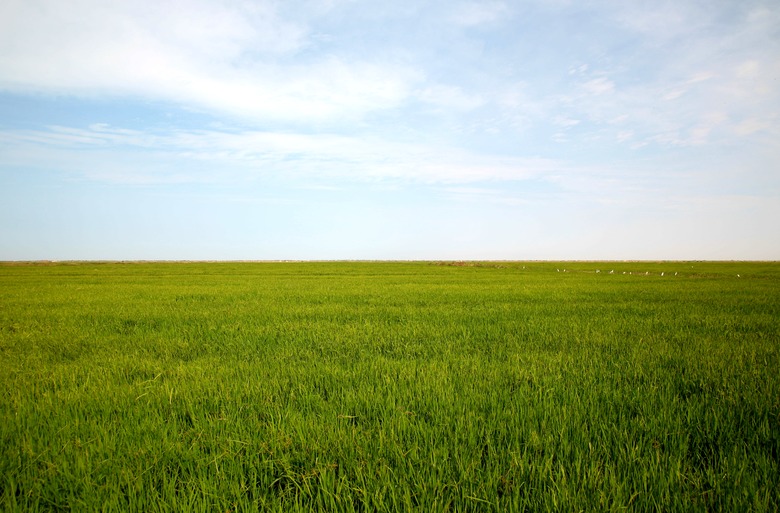A limiting factor is any nutrient, resource, or interaction which puts an immediate limit on the growth of a population or individual. Non-living limiting factors, or abiotic limiting factors, include space, water, nutrients, temperature, climate and fire. Different populations within an ecosystem may be subject to different limiting factors. The grasses themselves, for example, might be limited mostly by water, while a tree growing alongside a river might be limited instead by nitrogen or another soil nutrient.
Understanding Limiting Factors
Any given individual or population may be subject to several limiting factors, but one of these is usually more important than the rest. A particular crop might be deficient in several nutrients and also not have enough water. In this case, water is usually the limiting nutrient or limiting factor, meaning that even if the other nutrient deficiencies are corrected, the crop won’t grow much larger unless more water is provided. Once water is provided in abundance, something else becomes the most important limiting factor.
Water
Water is often the limiting factor in a grassland ecosystem, particularly during dryer times of the year or extended periods without rain.
Nitrogen
Nitrogen is usually the limiting factor in terrestrial ecosystems which have enough water. This is especially true of grassland and forest ecosystems. This is why nitrogen is one of the biggest components of fertilizer.
Fire
Long -term growth in grassland ecosystems is often kept in check by a cycle of natural fires which burn away grasses and shrubs on the surface, but leave roots and larger trees alive.
Temperature
During winter months, temperature can become the limiting factor for the growth of many organisms in a grassland ecosystem. Temperature also varies geographically according to altitude, so many species might not be found in the same abundance, or at all, at higher altitudes.

